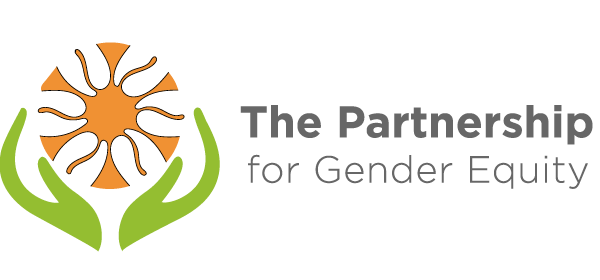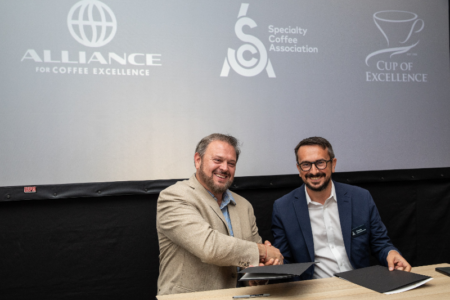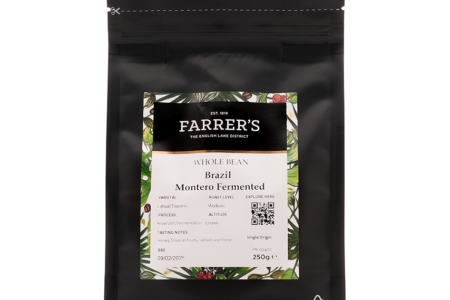PGE Launches its Project Methodology to Accelerate Gender Equity

The Partnership for Gender Equity (PGE) recently launched its third tool designed to enable industry allies to more effectively engage in gender equity. Presented to the industry at the World of Coffee, held in Amsterdam, Netherlands on 23 June, the Project Methodology (PM) provides partners with the ability to implement a field-level project within their own value chain.
Specifically, the PM details explanations that support companies, development organizations, and other supply chain partners as they design, plan, launch, and monitor a project at a household, community, and producer-organization level. The new tool was developed with financial support from the SAFE Platform of the InterAmerican Development Bank, and incorporated input from several industry and development professionals to ensure its applicability in a variety of settings. The methodology was validated within the PGE Field Level Project in Nicaragua, which was funded by the UTZ Sector Partnership Program, and includes a project-based indicator set to measure impact.
“With the launch of the Project Methodology tool, companies can more readily engage with work in their own supply chains to accelerate gender equity at the field level, and track our shared impact on the issue,” says PGE’s strategic director, Kimberly Easson.
S&D Coffee & Tea, a SAFE Platform member, recognizes the importance of gender sensitive methodologies in their diverse supply chain investments, encouraging the use of PGE’s methodology to enhance farmer performance metrics.
“The more we, as an industry stakeholder, engage in understanding how gender equity impacts our supply chain, the better we will structure and integrate our project within a holistic perspective,” explains Olga L Cuellar Gomez, of S&D Coffee and Tea. “Integrating some of the PGE methodology in our business has added value for us and our suppliers. PGE methodology reminds us, that when we engage with a farm, we need to consider all aspects of a coffee household, and to evaluate how this impacts our trading expectations.” She adds, “Gender equity is one aspect that we need to be more intentional, because the more we learn about the issue, the better we can approach it and integrate it into our supply chain.”
The Project Methodology links the first two tools, the Common Measurement Framework (CMF) and the Engagement Guide, both of which were funded with the support from the Global Coffee Platform (GCP) and launched in late 2017. The CMF allows coffee industry actors to learn about gender differences in their origin and supply chain programs by integrating indicators that measure the conditions that inhibit full participation of both men and women, while maximizing effective performance of the coffee value chain. The Engagement Guide for Gender Equity in the Coffee Sector provides a roadmap and resources for industry actors to engage in conversations about gender equity, and to aid in identifying actions that will support gender equity in their own organizations and with supply chain partners.
Over the next five years, PGE will work with partners to launch eight to 12 collaborative field level projects in key coffee-producing regions. Each project targets an estimated 2,500 coffee-farming families (reaching 25,000 households and over 100,000 beneficiaries in total, including men, women and children). PGE will track the impact and compare results, with the intention to demonstrate the impact of integrating gender equity approaches to sustainability in the coffee value chain.
PGE is dedicated to growing its network of allies, seeking partners and financial resources to help increase impact, and to ensure a supply chain works for all involved.
For more information on developing a project with PGE, or to collaborate in a growing number of upcoming origin projects including Ethiopia, Central and South America, contact PGE at [email protected].
The Partnership for Gender Equity (PGE), an initiative of the Coffee Quality Institute (CQI), was created in 2014 as a collaborative research and development initiative to better understand the link between gender equity and supply chain resilience and determine the best way to respond. PGE brings together a diverse array of industry and development partners to actively support gender equity in order to improve the quality of producers’ lives and the sustainable supply of quality coffee. To support PGE’s goals and help make a difference, companies can make a direct investment in PGE, and/or support our work through Research, Projects, and Education/Advocacy. For more information, visit: www.genderinequity.org.
The Sustainable Agriculture, Food and Environment (SAFE) Platform is a multi-stakeholder alliance initiated by the MIF, coordinated by Hivos and co-founded by private sector participants, donors and non-governmental organizations that share a common vision: improve the livelihood of farmers through the adoption of climate-smart agricultural practices, transforming coffee and cocoa landscapes. The Platform leverages existing knowledge, expertise, and resources from all its members in order to implement a series of projects that pilot or scale up innovative value chain approaches. For more information contact: [email protected].
S&D Coffee & Tea, a subsidiary of Cott Corporation, is the largest coffee and tea manufacturer and supplier to restaurants and convenience stores in America. S&D is also a leading producer of liquid extracts. In continuous operation since 1927, the company serves over 110,000 customers through national distribution and direct store delivery. For more information about S&D Coffee & Tea, go to www.sdcoffeetea.com.



